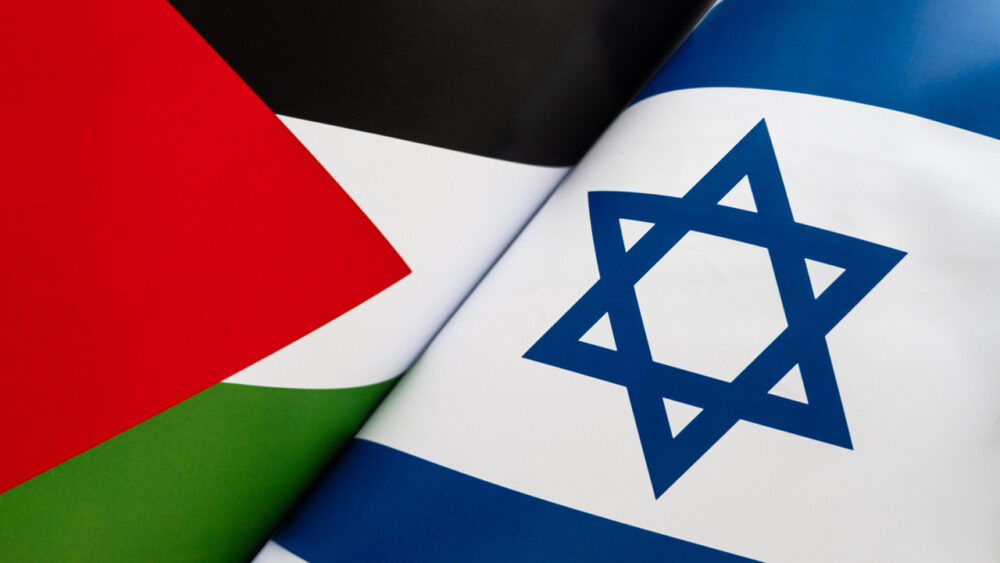The Israel Defense Forces (IDF) carried out airstrikes in Gaza on Sunday after Hamas militants fired an anti-tank missile at Israeli soldiers in the southern city of Rafah, killing two and wounding another, according to the IDF. The incident marked the most serious escalation since the ceasefire between Israel and Hamas took effect earlier this month, as previously reported by The Dallas Express.
IDF Confirms Soldiers Killed in Rafah
“The IDF announced that it will begin re-enforcing the Gaza ceasefire on Sunday night after it carried out ‘a series of strikes’ against Hamas targets in southern Gaza in response to the terror group violating the ceasefire agreement on Sunday,” The Jerusalem Post reported.
The IDF said the attack occurred when Hamas “fired an anti-tank missile and opened fire on Israeli soldiers.” Two soldiers — Maj. Yaniv Kula and St.-Sgt. Itay Yavetz — were killed, and another was seriously wounded, according to the IDF.
An Israeli official told The Jerusalem Post that “Hamas violated the ceasefire, not us. Israel wants to maintain the ceasefire and uphold the aid deliveries.”
Israeli Response
Following the attack, the IDF said it launched “a series of strikes” on Hamas positions in southern Gaza and other areas. The military said it targeted weapons storage sites, firing posts, and “terrorist infrastructure,” adding that six kilometers of Hamas tunnels were dismantled using 120 munitions.
The IDF released aerial footage showing militants approaching Israeli troops behind the so-called “yellow line” before being struck. According to the military, its actions were “in line with the ceasefire agreement” because “the terrorists were struck after crossing the yellow line.”
Israel also closed the Rafah border crossing and suspended humanitarian aid shipments following the Hamas attack. According to an official government statement,
“Prime Minister Benjamin Netanyahu instructed that the Rafah border crossing will not open until further notice. Its opening will be under consideration in accordance with the manner in which Hamas implements its part in the return of the deceased hostages and the implementation of the agreed upon framework.”
Axios reported that an Israeli official said aid deliveries were expected to resume Monday morning local time.
Casualties in Gaza
The Hamas-run Gaza Ministry of Health said at least 23 Palestinians were killed in the Israeli strikes. Hamas’s armed wing, the Izzadin al-Qassam Brigades, confirmed that several of its members — including field commander Yahya al-Mabhouh — were among the dead, according to The Jerusalem Post.
Hamas Denies Responsibility
Hamas’s military wing denied involvement in the Rafah incident, telling Axios: “We are not aware of any incidents or clashes taking place in the Rafah area, because these are zones under Israeli control, and contact has been severed with our groups that remained there.”
U.S. Coordination and Diplomacy
According to Axios, Israel informed the United States of its planned strikes in advance through the U.S. command center that oversees the ceasefire.
Trump administration envoys Steve Witkoff and Jared Kushner held a call with Israeli Strategic Affairs Minister Ron Dermer and other officials to discuss next steps, a U.S. official told the outlet.
The U.S. official said Washington urged Israel “to respond proportionately but show restraint,” adding that the administration’s focus was “on isolating Hamas for its violations and actions and moving fast towards creating an alternative for Hamas in Gaza, rather than resuming the war.”
American officials described the ceasefire as “a major diplomatic achievement for President Trump.” One U.S. official told Axios: “The next 30 days are going to be critical. We are now in charge of what’s going on in Gaza when it comes to the implementation of the deal. We are going to be calling the shots.”
Vice President Vance, Witkoff, and Kushner are scheduled to arrive in Israel this week to oversee implementation of the next phase of the Gaza peace deal, including humanitarian-aid regulation, stabilization efforts, and plans for a “New Rafah” project under non-Hamas governance, Axios reported.
Ceasefire Re-Enforced
By Sunday night, about ten hours after the fighting began, the IDF said that “in accordance with the directive of the political leadership, and following a significant series of strikes,” it had renewed adherence to the ceasefire “after its violation by Hamas.”
“The IDF will continue to enforce the ceasefire agreement and will respond forcefully to any violation of the agreement,” the military said in its statement.


